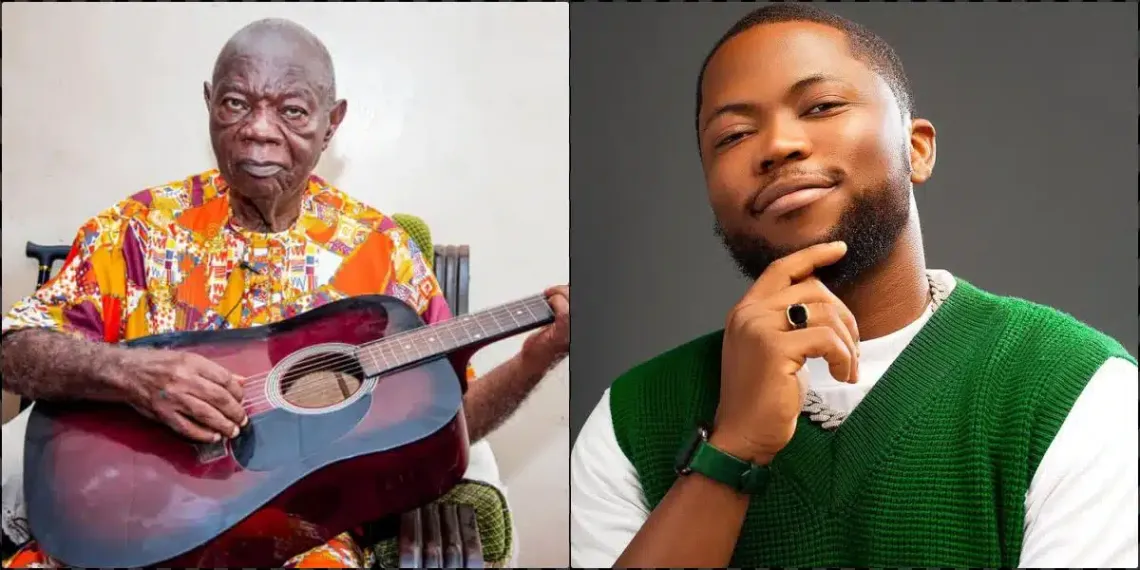
On July 5, 2024, a video featuring popular skit maker Brain Jotter dancing to Gentleman Mike Ejeagha’s 1983 hit song Ka Esi Le Onye Isi Oche went viral on Instagram.
The video amassed 29.1 million views and over 30,000 comments on Instagram. Additionally, it has 19.6 million views and 23,000 comments on TikTok. The renewed interest in the song sparked a wave of social media posts. Also, it sparked a debate on whether Brain Jotter’s use of the song constituted copyright infringement.
This opinion piece delves into the complexities of the situation. It attempts to answer the pressing question: Is Brain Jotter guilty of copyright infringement?
What is the basis of the Copyright Infringement claim?
Firstly, the core of the copyright infringement argument lies in Brain Jotter’s initial use of Ka Esi Le Onye Isi Oche in his skit. This was done without obtaining permission from Gentleman Mike Ejeagha. Also, this action appears to contravene Section 36 of the Copyright Act 2022. This act prohibits the unauthorized use of copyrighted works.
According to the Act, "Doing or causing anybody to do any act, which constitutes a violation of the exclusive right conferred on a copyrightable work," is prohibited. This section is designed to protect the rights of creators. Also, it ensures that they have control over the use of their work.
What rights does the Copyright Act 2022 confer?
Furthermore, Sections 2 and 12 of the Copyright Act 2022 protect sound recordings. It grants the owners exclusive rights over their works. So, Gentleman Mike Ejeagha, as the owner of the song, has the exclusive right to control its use. Unauthorized use of the song can thus be seen as a breach of these exclusive rights. As intellectual property lawyer Olanrewaju Bello explains, "All copyrighted sound recordings, or in this case, songs, and the owners of such work are entitled to exclusive rights over them, and nobody can use such work without the permission of the owner."
Could Brain Jotter’s use fall under fair use exceptions?
Additionally, Section 20 of the Copyright Act provides exceptions for fair use. This includes private use, satire, non-commercial research, caricature, parody, review, or reporting of current events. Also, Bello suggests that it is not straightforward to categorize Brain Jotter’s usage as falling outside these exceptions. He notes, "There’s a bit of actionable basis there. However, it’s the court that can determine whether Brain Jotter’s usage falls within the scope of the exceptions of fair usage provided for in Section 20."
Did Brain Jotter correct his approach in subsequent videos?
Meanwhile, in his subsequent videos, Brain Jotter used the licensed version of the song from the Instagram music library. According to Bello, this does not constitute a breach of copyright as Premier Records Ltd has granted a blanket license to TikTok, allowing the use of the song within the platform’s guidelines. Bello states, "In this case, the legal process of using sound recordings in skits and online content is to first ascertain whether such recording is already licensed to the social media platform and free for use of the content creator or requires further licensing. In this case, Premier Records Ltd has licensed the song in question to TikTok through its DSP in what is regarded as a blanket license. The implication is that Brain Jotter is not liable for copyright infringement on the song because this sound recording is licensed and is used within the spirit of the provisions of the Copyright Act 2022."
What are the legal ramifications?
Although, Ejeagha’s representatives could have taken legal action by initiating a takedown of the video and suing for damages. However, given the goodwill generated and the lack of intent to press charges, this appears unlikely. Bello elaborates, "The owners are not pressing charges, but if they wanted, they could initiate a takedown and even sue for damages."
Does Gentleman Mike Ejeagha benefit from the viral attention?
Notwithstanding, the virality of Brain Jotter’s video has brought renewed attention and potential income from increased streaming traffic for Gentleman Mike Ejeagha. Also, Brain Jotter’s goodwill gesture of offering ₦2 million and his visit to Ejeagha’s home also indicate a positive outcome for the 90-year-old musician. Meanwhile, the goodwill the 90-year-old musician has enjoyed since the video went viral and the potential income he stands to enjoy from increased streaming traffic also suggest that a case of copyright infringement might be a lost cause.
Conclusion
While Brain Jotter’s initial use of the song may technically constitute copyright infringement, the situation is nuanced. So, the potential benefits to Gentleman Mike Ejeagha and the subsequent compliance by Brain Jotter with licensing requirements suggest a complex interplay of legal and ethical considerations. Also, the recurring issue of copyright infringement in Nigeria’s creative sector shows the need for clearer guidelines and enforcement mechanisms to protect the rights of artists while fostering creative expression.
Final Thoughts
However, is Brain Jotter guilty of copyright infringement? Legally, there is a case to be made. Ethically, the situation is more complicated, with potential benefits for both parties. Ultimately, this case reflects the importance of understanding and respecting copyright laws while recognizing the evolving dynamics of the digital age.